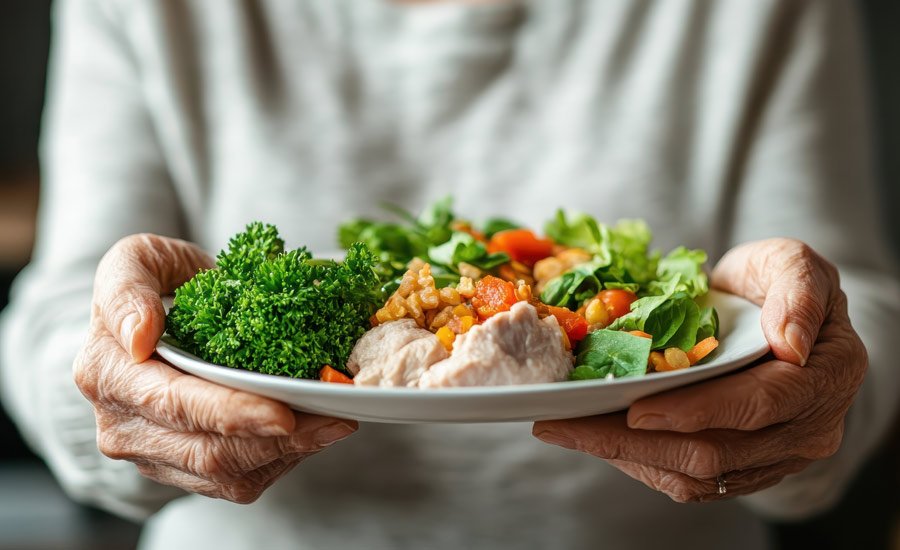Managing Food Allergies in a Care Home – What to Expect

Food allergies and intolerances can’t be treated as an afterthought, especially in a care home setting. If your loved one needs extra attention around food, you’ll want to know exactly how staff manage allergies and avoid risks.
An estimated 33% of older adults aged 65 and over live with diabetes, a condition that often requires careful dietary planning alongside other food-related needs or restrictions. For many older people, this is managed alongside other health conditions, intolerances or allergies that can develop later in life.
This article will discuss how care homes manage allergies and intolerances day-to-day and what you can expect as a family member.
How Do Care Homes Handle Food Allergies or Intolerances?
Care homes manage food allergies and intolerances by recording dietary needs before someone moves in, training kitchen and care staff to prevent cross-contamination and adapting meals to suit each resident. Meals are clearly labelled, staff follow strict preparation protocols and care plans are regularly reviewed. Most homes also work closely with dieticians, GPs and families to make sure meals are safe, suitable and satisfying for every resident.
Care Home Meals Start with the Right Information
Before a new resident moves in, the care team gathers detailed information about their health, dietary needs and any allergies or intolerances. A thorough conversation is had with the resident and their family to understand what’s needed and what to avoid.
Whether it’s a severe nut allergy, a long-term wheat intolerance or a preference that’s been medically advised, like a low-salt or dairy-free diet, it’s all recorded clearly in the care plan. The team will share this information with the kitchen team, nursing staff and carers so that everyone is on the same page from day one.
If there’s ever any uncertainty, such as about the allergy itself, cross-reactions or how it’s managed, the home will usually speak directly with a GP, specialist or dietitian to ensure the right support is in place before meals are served.
Safe Doesn’t Mean Boring
A food allergy or intolerance shouldn’t mean being stuck with bland meals. In a good care home, adapted meals are still satiating, but they’re prepared safely.
The kitchen team prepares alternatives that suit each resident’s needs without making them feel like an afterthought. Whether it’s swapping ingredients, using allergen-free versions or reworking a recipe entirely, staff make sure all residents enjoy what’s on their plate.
Menus are adjusted where needed, not stripped back, always giving residents a choice. If someone’s coeliac, they’ll have gluten-free versions available. If dairy is the issue, there are plenty of ways to make favourites like porridge or puddings work without it. And if someone’s tastes change or their needs shift, their meals are reviewed and adapted as often as necessary.
Keeping Care Home Meals Safe Over Time
Whether it’s a shift in health, appetite, medication or tolerance, care homes regularly review each resident’s dietary requirements to make sure they’re still accurate and appropriate.
If a new allergy develops, a food starts causing discomfort or a GP recommends a change in diet, the care home team updates the plan and communicates that clearly across all staff. Meals are then adjusted promptly and safely.
Families are kept informed and encouraged to raise any concerns. If you’ve noticed something, like your loved one avoiding certain foods or seeming unwell after meals, the team will take that seriously. This ongoing monitoring is part of the daily routine. It’s how safe, personalised care is maintained over time.
Choosing a Care Home With Food Safety in Mind
In a care home, food-related needs like allergies and intolerances are handled as part of someone’s overall care. From adapted menus to trained staff and clear communication with families, the right systems are in place to keep residents safe and well-supported at mealtimes. And most importantly, they make sure your loved one is enjoying what they eat and feeling satisfied during the day and before bed. If you’re choosing a home for a loved one, asking how dietary needs are handled is not only reasonable, it’s essential.
Ready to explore...
